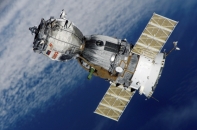The Seminar on Geographical Information System and Land Management- Net Zero and Sustainable Development

I. Title of the Seminar: Geographical Information System and Land Management- Net Zero and Sustainable Development
II. Organizer: International Center for Land Policy Studies and Training
III. Duration: 14 days, Oct. 18- Oct. 31, 2023
IV. Target Audience: 22-24 international participants of medium and high level government officials or experts in the fields of Geographical Information System and Land Management
V. Goals:
1. Introducing Taiwan's development experiences and achievements in Geographical Information System and Land Management to the participants
2. Providing a forum for the participants to discuss and exchange ideas and experiences within the context of the aforementioned topics and related issues
3. Forming a human resource network of the Center's alumni
VI. Methodology
1. The seminar is designed with an appropriate balance between theory and practice. It takes into consideration of the needs of the developing countries and employs Taiwan's experiences as an important reference.
2. The seminar is composed of the major components including lectures, participants' presentation, field trips and cultural visits.
VII. Design:
1. The seminar is composed of the following components:
(1) Opening session and course overview, 0.5 day
(2) Lectures, 2 days
(3) Participants’ presentation, 2.5 days
(4) Field trips and cultural visits, 8 days (including free time)
(5) Wind-up discussion, 0.5 day
(6) Welcome and farewell parties and other activities (scheduled for noons or evenings)
(7) Arrival and departure, 1 day for each
2. The lecture portion aims to deal with the following areas:
(1) Geographical Information System and Land Management
(2) Geographical Information System and Tourism Planning
(3) Geographical Information System – Land Use Planning and Disaster
(4) Geographical Information System and Local Land Use
3. The participants' presentation is one of the most important components in this seminar, where the participants can share and appreciate problems and difficulties faced in their respective countries, with a hope of finding some concrete and feasible recommendations and strategies. Two days and a half are reserved for this purpose, where each participant has to present a report on the issues and solutions for any project or program in their country which bears relevance to the theme of the course.
The presentation should include:
(1) A geographical background (around 2 minutes)
(2) The specific project/program (around 18 minutes)
(3) Q &A (around 5 minutes).
Participants have to prepare this before attending the seminar and are advised to rehearse the presentation so as to better control their time and achieve an effective delivery of the same.
4. Field trips and cultural visits are arranged in line with the specific topics dealt with in the course; they typically take the participants to GIS and land management agencies in the central and local governments, academic research institutes, etc. Within the trips and visits, the participants are given a chance to take in the beautiful views in some internationally renowned scenic spots and cultural sites, which are hoped to help the participants see and feel for themselves Taiwan's developments in its society and economy as well as its friendly people and good tradition.
5. The course emphasizes experience sharing and direct participation; lectures and participants' presentation are all conducted in English, while field trips and cultural visits are guided by the Center's staff members, who act as interpreters whenever necessary to enable the participants to better communicate and understand the hosts during the visits.
II. Organizer: International Center for Land Policy Studies and Training
III. Duration: 14 days, Oct. 18- Oct. 31, 2023
IV. Target Audience: 22-24 international participants of medium and high level government officials or experts in the fields of Geographical Information System and Land Management
V. Goals:
1. Introducing Taiwan's development experiences and achievements in Geographical Information System and Land Management to the participants
2. Providing a forum for the participants to discuss and exchange ideas and experiences within the context of the aforementioned topics and related issues
3. Forming a human resource network of the Center's alumni
VI. Methodology
1. The seminar is designed with an appropriate balance between theory and practice. It takes into consideration of the needs of the developing countries and employs Taiwan's experiences as an important reference.
2. The seminar is composed of the major components including lectures, participants' presentation, field trips and cultural visits.
VII. Design:
1. The seminar is composed of the following components:
(1) Opening session and course overview, 0.5 day
(2) Lectures, 2 days
(3) Participants’ presentation, 2.5 days
(4) Field trips and cultural visits, 8 days (including free time)
(5) Wind-up discussion, 0.5 day
(6) Welcome and farewell parties and other activities (scheduled for noons or evenings)
(7) Arrival and departure, 1 day for each
2. The lecture portion aims to deal with the following areas:
(1) Geographical Information System and Land Management
(2) Geographical Information System and Tourism Planning
(3) Geographical Information System – Land Use Planning and Disaster
(4) Geographical Information System and Local Land Use
3. The participants' presentation is one of the most important components in this seminar, where the participants can share and appreciate problems and difficulties faced in their respective countries, with a hope of finding some concrete and feasible recommendations and strategies. Two days and a half are reserved for this purpose, where each participant has to present a report on the issues and solutions for any project or program in their country which bears relevance to the theme of the course.
The presentation should include:
(1) A geographical background (around 2 minutes)
(2) The specific project/program (around 18 minutes)
(3) Q &A (around 5 minutes).
Participants have to prepare this before attending the seminar and are advised to rehearse the presentation so as to better control their time and achieve an effective delivery of the same.
4. Field trips and cultural visits are arranged in line with the specific topics dealt with in the course; they typically take the participants to GIS and land management agencies in the central and local governments, academic research institutes, etc. Within the trips and visits, the participants are given a chance to take in the beautiful views in some internationally renowned scenic spots and cultural sites, which are hoped to help the participants see and feel for themselves Taiwan's developments in its society and economy as well as its friendly people and good tradition.
5. The course emphasizes experience sharing and direct participation; lectures and participants' presentation are all conducted in English, while field trips and cultural visits are guided by the Center's staff members, who act as interpreters whenever necessary to enable the participants to better communicate and understand the hosts during the visits.
June 9,2023









